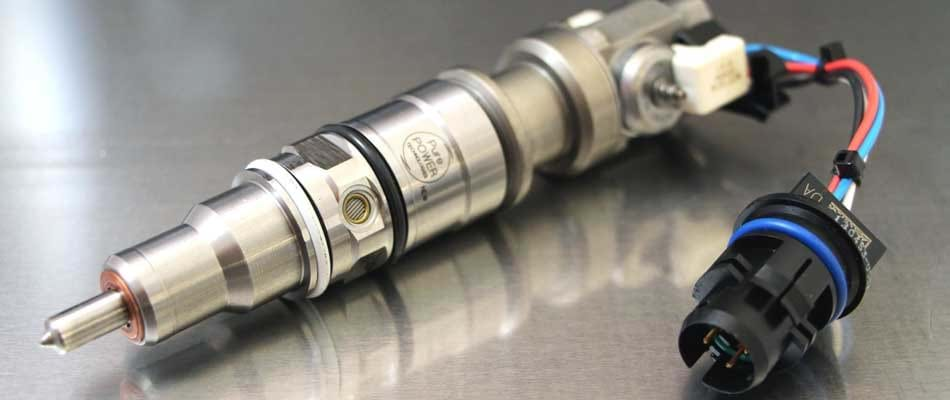Your engine's lifeblood is the diesel fuel injection system, a complex arrangement of components designed to supply the fuel at the right amount and a
Your engine’s lifeblood is the diesel fuel injection system, a complex arrangement of components designed to supply the fuel at the right amount and as a finely fragmented spray at the right time. Engine efficiency, fuel usage, and exhaust emissions all depend on the operating quality. Because they run under extremely high pressure, common-rail systems are therefore quite susceptible to wear and dust. Ignoring this meritorious system causes a series of failures including uncontrolled idling, loss of great power, excessive smoking, and expensive component malfunction.
When it comes to a rigorous maintenance plan, there is no hint to be observed; rather, it is an economic need that preserves the value of your car and keeps it in good condition. For long-term problems, the last resort is to engage a professional diesel injection service, wherein equipment is utilised that is specifically suited to find system failures. Re-establish system integrity and clean the injectors to allow for optimal combustion and performance.
Use Dependable Suppliers And High-Quality Fuel
Using top-grade fuel from reputable sources is the key to maintaining injection system health. Good diesel fuel has a better detergent additive package that prevents carbon buildup on injector nozzles. Such accumulation might disrupt the delicately calibrated spray pattern, thereby producing inadequate combustion, reduced power, and increased soot. Right fuel outlets also help keep tanks clean, reducing the chances of water pollution and particulate matter entering your fuel system. Though it is a deal compared to the expense of replacing clogged or dirty fuel injectors, betting on cut-rate, generic fuel can cost a few cents per litre.
Change The Fuel Filter Regularly
The fuel filter is your final line of defence for your injection system mechanism, just as Pillow Block Bearings protect machinery from wear. It gathers tiny debris and particles that would corrode and block the extremely machined surfaces of the injectors and high-pressure pump.. Fuel flow is limited by a clogged filter, which causes the fuel pump to strain and leads to early failure. While both manufacturers propose replacement intervals, more regular ones are required on older cars or in arid environments. The only filter to use is a good, OEM-approved one as inferior versions could miss the tiniest, most dangerous particles. One of the most affordable steps you may take is to change the fuel filter.
Steer Clear Of Water Entering The Fuel System
A diesel injection system’s arch-enemy is water. Dirty fuel or condensation in the fuel tank might let it in. Internal metal parts, such as the high-pressure pump and injectors, are rusted by water; it does not lubricate, which leads to significant wear. Water causes cavitation, a phenomenon that impacts components in more recent common-rail systems. At the bottom, most contemporary diesel filters have a drain valve and water sensor. Particularly before cold weather sets in, it is essential to inspect and drain any water that may have accumulated over time. It has the capacity to stop and freeze the system.
Clean The Fuel System With A Premium Fuel System Cleaner
Over time, premium fuel will still result in carbon buildup. Using a great fuel system cleaner periodically or at an oil change will help keep the system clean. Designed to remove deposits created on injector nozzles and other components, the cleaners ensure a clean spray pattern and maximise combustion efficiency. Better fuel economy, reduced emissions, and smoother idling can all result from this. To prevent damage to sensitive components, ensure you use only in newer high-pressure diesel engines and follow the dose rate precisely.
Run the Tank Only on Empty
Regularly having the fuel tank be low on gas only raises the chances of drawing bottom sediment into the fuel lines and filter. Additionally, encouraging extra condensation in the tank, the air gap above the fuel space is heated, stretched, and compressed, hence providing further water vapour. Maintaining your tank at least a quarter full will help to reduce these dangers. Maintaining the in-tank fuel pump under fuel at all times, which siphons fuel from the diesel for use and cooling, is a little ritual. So it won’t overheat and break too early.
Conclusion
It’s a preventive maintenance with a diesel fuel injection system to keep it going. If you want to extend the life of these expensive and essential components, install new filters frequently, and drive responsibly, you can double their lifespan with minimal effort. Paying attention to the portents of catastrophe to occur and having them serviced in a hurry can be the difference between a run-of-the-mill service and a crippling repair bill.
Ultimately, a well-maintained injection system is the key to bringing out the full potential of your diesel engine delivering bold performance, excellent fuel economy, and fewer emissions for thousands of miles ahead. Treating it like gold is money well invested.
